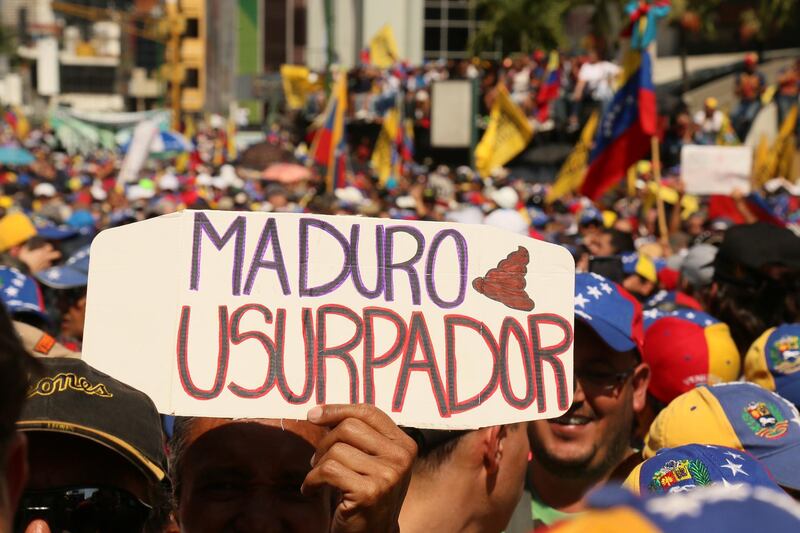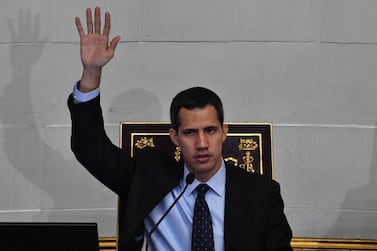Venezuela President Nicolas Maduro threatened on Saturday to bring forward parliamentary elections in a bid to sideline opposition leader Juan Guaido's challenge to his authority, as tens of thousands of protesters poured into the streets of Caracas.
Mr Guaido is the parliament president, but declared himself acting president of the country on January 23.
The National Assembly head led a mass opposition street protest in Caracas on Saturday demanding that Mr Maduro resign and hold new presidential elections.
But speaking at a rival pro-regime rally celebrating the 20th anniversary of the socialist revolution led by his predecessor Hugo Chavez, Mr Maduro said he was in favour of a Constituent Assembly proposal to bring forward to this year parliamentary elections set for the end of 2020.
"I agree and I will hold to this decision," said Mr Maduro, who was making his first public appearance in six months.
"They [the opposition] want to bring forward elections, let's have elections," he said.
Four major European nations – Britain, France, Germany and Spain – have said they will join the United States and several Latin American countries in recognising Mr Guaido as interim president if Mr Maduro doesn't call presidential elections by midnight on Sunday.
The National Assembly is the only branch of government in opposition control.
However, it has been powerless since 2016 when the regime-loyalist dominated Supreme Court stripped it of its powers.
Mr Maduro created the Constituent Assembly in 2017 to replace parliament, with the new body announcing itself the institution with supreme power in the country.
When new parliamentary elections are held, the opposition could lose its majority.
Backed by increasing international support, Mr Guaido has been stepping up the pressure on Mr Maduro in a bid to force him from office.
He claims to have the constitutional right to set up a transitional government before new presidential elections as the National Assembly has declared Mr Maduro a "usurper" over his controversial re-election last year.
Tens of thousands of protesters poured into the streets of Caracas on Saturday in rival displays for and against the embattled Venezuelan president.
The rival rallies, which convened in different parts of the city, come on the eve of a deadline set by the EU and other European powers for Mr Maduro to call "free elections" or have them recognise Mr Guaido.
Mr Guaido has promised a huge turnout – the largest in the country's history, he has said – to reinforce his call for elections organised by a transitional government he claims to lead as head of the National Assembly.
Carrying Venezuelan flags and blowing horns and whistles, his supporters began massing at five locations around the city for a march on EU headquarters in eastern Caracas.
The pro-Maduro crowds were rallying in the western side of the city to mark the 20th anniversary of the rise of power of Hugo Chavez, the leftist firebrand who installed a socialist government.
Hundreds of members of a civilian militia, public workers and people who have benefited from the government's social programmes began to concentrate in the downtown Avenida Bolivar area in a show of support for their beleaguered leader.







